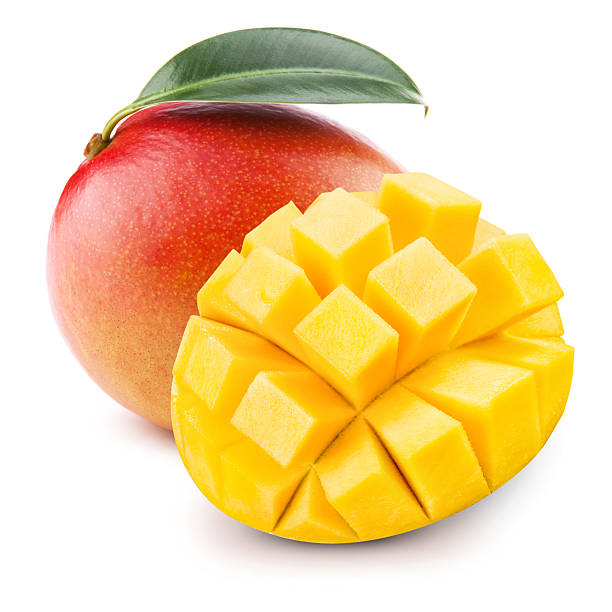Introduction
Mangoes, often referred to as the “king of fruits,” are not only delicious but also packed with a multitude of nutrients that make them a highly valuable addition to your diet. Originating from South Asia, mango has now become a staple fruit in many tropical and subtropical regions across the world. Their unique flavor, vibrant color, and exceptional nutritional profile make them a popular choice for health-conscious individuals. This article delves into the nutritional benefits of mangoes, exploring their vitamins, minerals, antioxidants, and their overall impact on health.
Table of Contents
Nutritional Profile of Mangoes
Mangoes are a rich source of essential nutrients, providing significant amounts of vitamins, minerals, and antioxidants. A typical mango (approximately 165 grams) contains the following:

- Calories: 99
- Protein: 1.4 grams
- Fat: 0.6 grams
- Carbohydrates: 24.7 grams
- Dietary Fiber: 2.6 grams
- Sugars: 22.5 grams
Vitamins
- Vitamin C: Mangoes are particularly high in vitamin C, providing about 60% of the recommended daily intake in just one cup. This vitamin is crucial for immune function, collagen formation, wound healing, and the absorption of iron from plant-based foods.
- Vitamin A: Mangoes are a great source of vitamin A in the form of beta-carotene. This nutrient is essential for vision, immune function, and skin health. One cup of sliced mango offers around 35% of the daily vitamin A requirement.

- Vitamin E: Known for its antioxidant properties, vitamin E helps protect cells from damage and supports immune function. Mangoes contain a moderate amount of this fat-soluble vitamin.
- Folate (Vitamin B9): Mangoes provide folate necessary for DNA synthesis and repair, making it particularly important for pregnant women to support fetal development.
- Vitamin K: This vitamin is vital for blood clotting and bone health. Mangoes contribute to a healthy intake of vitamin K.
Minerals
- Potassium: Essential for maintaining proper heart function and regulating blood pressure, mangoes are a good source of potassium. They help balance the body’s fluids and electrolytes.
- Magnesium: This mineral plays a crucial role in muscle and nerve function, blood sugar control, and bone health. Mangoes contain a reasonable amount of magnesium.
- Copper: Copper aids in the formation of red blood cells, the absorption of iron, and the maintenance of nerve cells and the immune system. Mangoes are a decent source of this trace mineral.
- Calcium: While not a major source of calcium, mangoes do contribute to the overall intake necessary for bone health.
Antioxidants and Phytochemicals
Mangoes are abundant in various antioxidants and phytochemicals that help protect the body against oxidative stress and inflammation. Some of the key antioxidants found in mangoes include:

- Mangiferin: This polyphenol has potent antioxidant and anti-inflammatory properties, potentially reducing the risk of certain chronic diseases.
- Beta-carotene: A precursor to vitamin A, beta-carotene is a powerful antioxidant that helps protect the body from free radicals.
- Quercetin: This flavonoid has been shown to have anti-inflammatory, antihistamine, and antiviral properties.
- Gallic acid: Known for its antioxidant and antimicrobial properties, gallic acid can help protect against various infections and diseases.
Health Benefits of Mangoes
Supports Digestive Health
Mangoes are rich in dietary fiber, which aids in digestion and prevents constipation. The presence of both soluble and insoluble fiber in mangoes ensures smooth bowel movements and a healthy digestive tract. Additionally, mangoes contain enzymes such as amylases, which help break down carbohydrates and improve digestion.
Boosts Immune System

The high vitamin C content in mangoes boosts the immune system by stimulating the production and function of white blood cells. Vitamin A and various carotenoids in mangoes also contribute to a robust immune response, protecting the body from infections.
Promotes Eye Health
Mangoes are an excellent source of vitamin A and beta-carotene, both of which are essential for maintaining healthy vision. These nutrients help prevent dry eyes and night blindness and reduce the risk of age-related macular degeneration.
Enhances Skin Health
The vitamins A and C in mangoes play a crucial role in skin health. Vitamin C promotes collagen production, which keeps the skin firm and youthful, while vitamin A helps reduce acne and improves overall skin texture. The antioxidants in mangoes also protect the skin from damage caused by UV rays and pollution.
Supports Heart Health

Mangoes contribute to heart health through their potassium, magnesium, and antioxidant content. Potassium helps regulate blood pressure by counteracting the effects of sodium, while magnesium supports proper muscle function, including that of the heart. The antioxidants in mangoes, such as quercetin and beta-carotene, reduce oxidative stress and inflammation, lowering the risk of cardiovascular diseases.
Aids in Weight Management
Mangoes can be a part of a weight management plan due to low-calorie calories and high fiber content. The fiber in mangoes promotes satiety, reducing overall calorie intake by making you feel fuller for longer periods. Additionally, the natural sugars in mangoes provide a healthy alternative to processed sweets, helping to curb sugar cravings.
Improves Cognitive Function
The presence of vitamins B6 and C in mangoes supports brain health. Vitamin B6 aids in the production of neurotransmitters, which are essential for mood regulation and cognitive function. Vitamin C, with its antioxidant properties, protects the brain from oxidative damage, potentially reducing the risk of neurodegenerative diseases.
How to Incorporate Mangoes into Your Diet
Mangoes can be enjoyed in various forms and added to numerous dishes to enhance their nutritional value and flavor. Here are some ideas to incorporate mangoes into your diet:

- Fresh Slices: Enjoy fresh mango slices as a snack or add them to fruit salads for a burst of sweetness.
- Smoothies: Blend mangoes with yogurt, milk, or plant-based alternatives for a refreshing and nutritious smoothie.
- Salads: Add diced mangoes to green salads or grain salads to introduce a sweet and tangy flavor.
- Salsas: Combine mangoes with tomatoes, onions, cilantro, and lime juice to create a delicious mango salsa, perfect for pairing with grilled meats or fish.
- Desserts: Use mangoes in desserts like sorbets, ice creams, and puddings for a natural sweetness and vibrant color.
- Curries: Mangoes can be used in savory dishes such as curries and chutneys to balance out spicy flavors.
Potential Allergies and Considerations
While mangoes are generally safe for most people, some individuals may experience allergic reactions. Mango allergies are typically associated with a condition called “oral allergy syndrome,” where the body mistakes certain proteins in mangoes for pollen allergens. Symptoms may include itching or swelling of the mouth, lips, and throat.
Additionally, mangoes contain urushiol, the same compound found in poison ivy, which can cause skin rashes in sensitive individuals. It’s important to handle mangoes carefully and wash your hands thoroughly after cutting them.
Conclusion:

Mangoes are a nutrient-dense fruit that offers a wide array of health benefits, from supporting digestive health to boosting the immune system and promoting skin and eye health. Their rich vitamin, mineral, and antioxidant content make them an excellent addition to any diet. Whether enjoyed fresh, blended into smoothies, or incorporated into savory dishes, mangoes provide a delicious and healthful way to enhance your overall nutrition. As with any food, it is important to consume mangoes in moderation and be mindful of any potential allergies. Embrace the king of fruits and enjoy the myriad of benefits it brings to your health and well-being.
